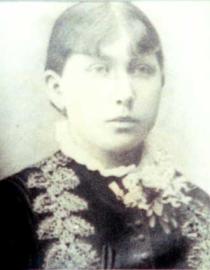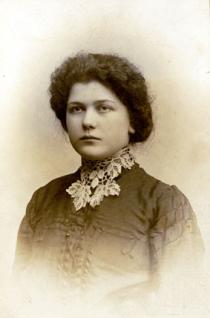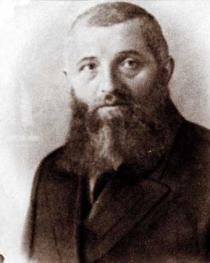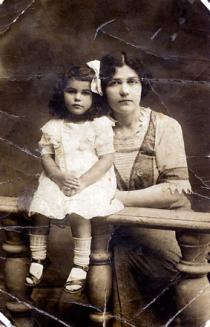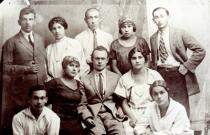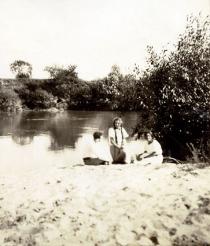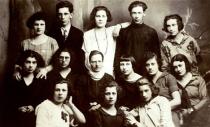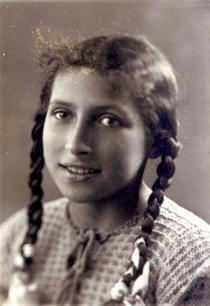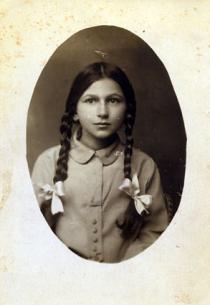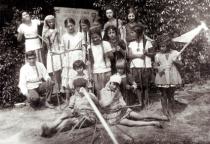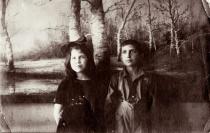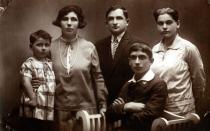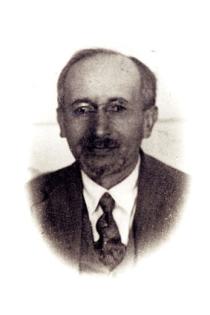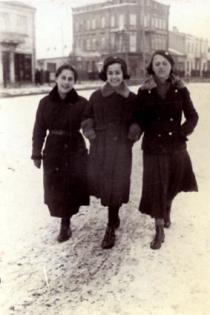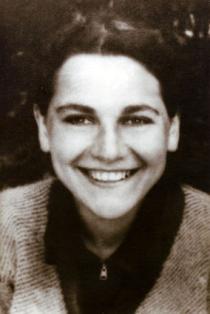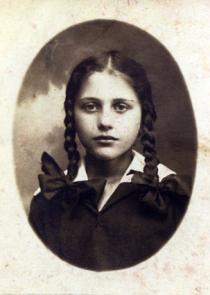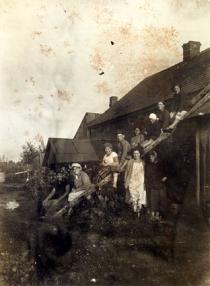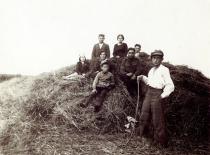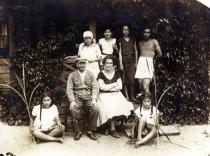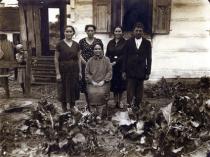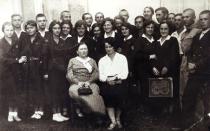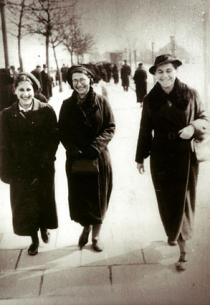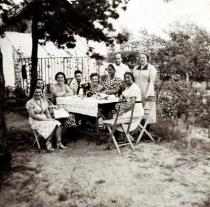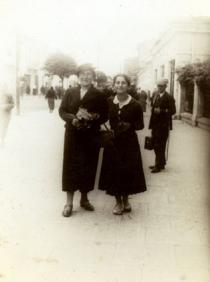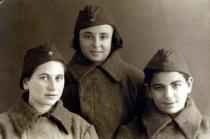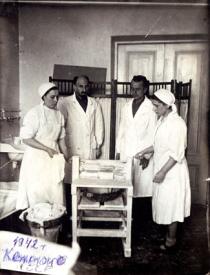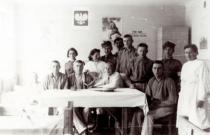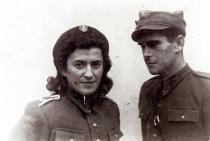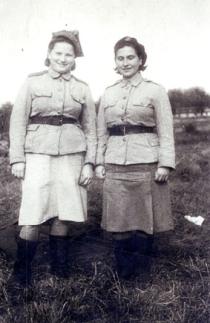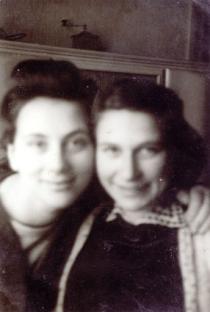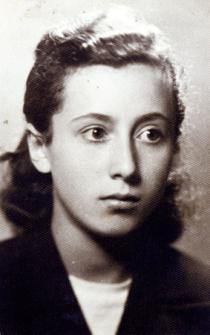This is a photo of my father, Mosze Rosset. He was quite old then, I think it could be taken late in 1920s. He died in 1933.
My father's parents, the Rossets, came from Volodymir-Volyns'kyy [presently Ukraine]. Grandpa owned a printing house in Volodymir. The family later moved to Lublin, I don't know why. Grandpa was a middleman in grain trade, and my father used to help him I believe.
Father stayed home once a week, he had his business trips, I think he traded in grain. He was a middleman. He also had a job in Rejowiec [a small town ca. 50 km south-east of Lublin], he kept the books for a flour mill. I was not really interested at the time in what he did. He always came home to Lublin on Fridays and we had a holiday dinner. Mom lit the candles. Father used to drink a small glass of vodka before the meal. He produced it himself from wheat. He would come home on Friday and leave again on Sunday. When we were in Skryhiczyn for the summer, he would come to us just the same, Saturday only.
Father was very religious. I remember him attaching the straps with the biblical Commandments to his forehead before prayers. He prayed alone, every day. I don't remember him wearing a yarmulka. He told me not all the religious regulations were reasonable but had to be kept nevertheless, as they allowed Jews to maintain their tradition and identity. There were arguments sometimes, when Mom mixed the milk knife up with the meat one or some such. Mom's relatives valued Father higher than her, because she was absent-minded and not religious, and he was religious. They also liked my Father for his sense of humor, he was witty.
Father was very sickly person. As a child he'd fallen ill with tuberculosis that hadn't been treated completely and he used to have relapses. He was treated in Krynica and later he went to Otwock [health resorts]. He also had a heart condition. He never was a completely healthy person. I was ten when he fell ill. I remember we came back home from the summer holidays and Mom told us to be quiet because Father had got ill. It was his first heart attack. He hardly worked anymore from that time on. He lay at home, he was on diet. I lasted three years that way. He did some business sometimes, some clients came to see him.
He died in Skryhiczyn in July 1933. He was buried in Dubienka. Mom set up a gravestone there. The tomb made it through the war but under the Communist rule the area was turned into a machine depot. That's how it was, the Jewish cemeteries were being erased. The Turkish ones have not been destroyed, nor the Armenian, nor the Russian, only the Jewish ones.

